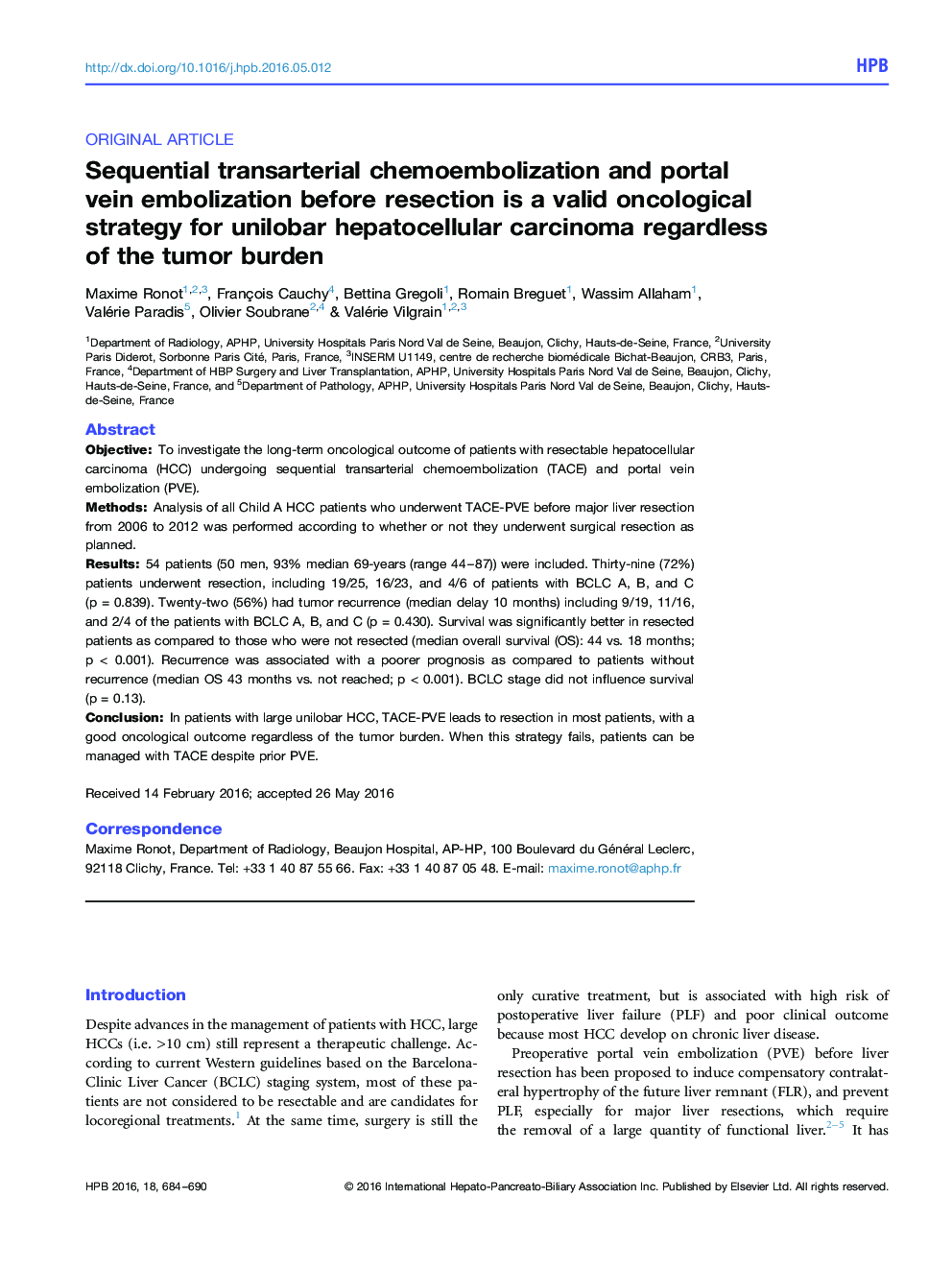| Article ID | Journal | Published Year | Pages | File Type |
|---|---|---|---|---|
| 3268443 | HPB | 2016 | 7 Pages |
ObjectiveTo investigate the long-term oncological outcome of patients with resectable hepatocellular carcinoma (HCC) undergoing sequential transarterial chemoembolization (TACE) and portal vein embolization (PVE).MethodsAnalysis of all Child A HCC patients who underwent TACE-PVE before major liver resection from 2006 to 2012 was performed according to whether or not they underwent surgical resection as planned.Results54 patients (50 men, 93% median 69-years (range 44–87)) were included. Thirty-nine (72%) patients underwent resection, including 19/25, 16/23, and 4/6 of patients with BCLC A, B, and C (p = 0.839). Twenty-two (56%) had tumor recurrence (median delay 10 months) including 9/19, 11/16, and 2/4 of the patients with BCLC A, B, and C (p = 0.430). Survival was significantly better in resected patients as compared to those who were not resected (median overall survival (OS): 44 vs. 18 months; p < 0.001). Recurrence was associated with a poorer prognosis as compared to patients without recurrence (median OS 43 months vs. not reached; p < 0.001). BCLC stage did not influence survival (p = 0.13).ConclusionIn patients with large unilobar HCC, TACE-PVE leads to resection in most patients, with a good oncological outcome regardless of the tumor burden. When this strategy fails, patients can be managed with TACE despite prior PVE.
